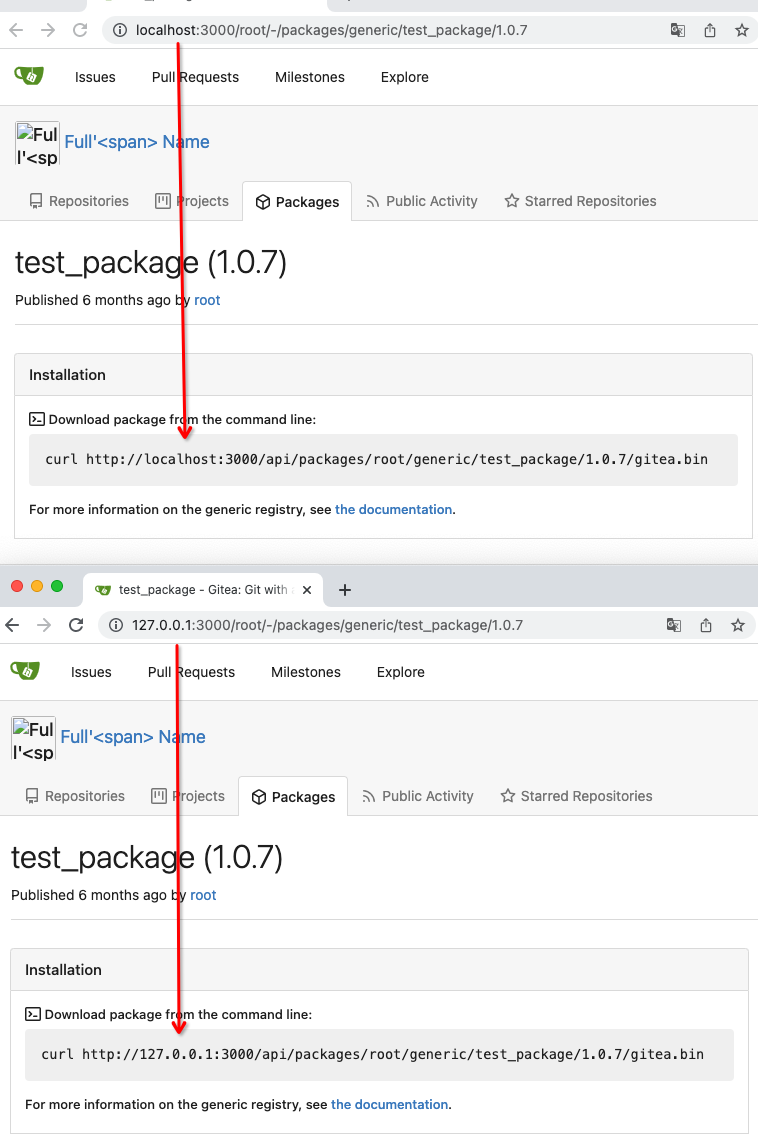When setting `url.host` on a URL object with no port specified (like is
the case of default port), the resulting URL's port will not change.
Workaround this quirk in the URL standard by explicitely setting port
for the http and https protocols.
Extracted the logic to a function for the purpose of testing. Initially
I wanted to have the function in utils.js, but it turns out esbuild can
not treeshake the unused functions which would result in the
webcomponents chunk having all 2kB utils.js inlined, so it seemed not
worth.
Fixes: https://github.com/go-gitea/gitea/issues/29084
Related: #23590
Reference:
https://github.com/webcomponents/polyfills/tree/master/packages/webcomponentsjs
It seems that there are some users using old browsers, so the
`window.customElements` need polyfill.
The Custom Elements would help a lot for Gitea's UI problems, including:
* `<span class="js-pretty-number">`
* `<time data-format>`
So it's worth get polyfill.
---------
Co-authored-by: delvh <dev.lh@web.de>
This PR follows:
* #21986
* #22831
This PR also introduce customized HTML elements, which would also help
problems like:
* #17760
* #21429
* #21440
With customized HTML elements, there won't be any load-search-replace
operations, and it can avoid page flicking (which @silverwind cares a
lot).
Browser support:
https://developer.mozilla.org/en-US/docs/Web/API/Window/customElements
# FAQ
## Why the component has the prefix?
As usual, I would strongly suggest to add prefixes for our own/private
names. The dedicated prefix will avoid conflicts in the future, and it
makes it easier to introduce various 3rd components, like GitHub's
`relative-time` component. If there is no prefix, it's impossible to
introduce another public component with the same name in the future.
## Why the `custcomp.js` is loaded before HTML body? The `index.js` is
after HTML body.
Customized components must be registered before the content loading.
Otherwise there would be still some flicking.
`custcomp.js` should have its own dependencies and should be very light,
so it won't affect the page loading time too much.
## Why use `data-url` attribute but not use the `textContent`?
According to the standard, the `connectedCallback` occurs on the
tag-opening moment. The element's children are not ready yet.
## Why not use `{{.GuessCurrentOrigin $.ctx ...}}` to let backend decide
the absolute URL?
It's difficult for backend to guess the correct protocol(scheme)
correctly with zero configuration. Generating the absolute URL from
frontend can guarantee that the URL is 100% correct -- since the user is
visiting it.
# Screenshot
<details>

</details>